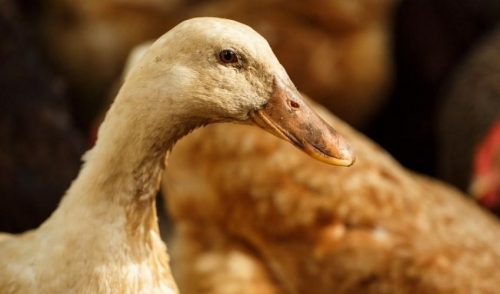Domestic ducks can co-exist very happily with backyard chickens. Their basic feed and shelter requirements very similar to those of chickens – with only a few minor differences.
Housing
Ducks are semi-nocturnal and very active at night unlike chickens. They emit lots of moisture when they breathe so if you keep them in your chicken coop at night, be sure that the coop is adequately ventilated to prevent a buildup of moisture which can cause respiratory issues in the hens. Ducks don’t roost and will be perfectly happy sleeping on soft straw or shavings on the coop floor. They don’t necessarily even need nesting boxes, but rather seem to prefer making themselves a nest in one corner of the coop. They also are more cold-hardy and enjoy cooler temperatures, summer and winter. Regardless of whether you keep ducks with, or separate from, your chickens, they do need to be locked up at night in a secure shelter with hardware cloth on all the windows.
Pen
Domestic ducks can’t fly (except for mallards and muscovies) and therefore are very susceptible to predators. An enclosed run or pen is a must for them for daytime. The pen should be covered and the fencing should be sunk into the ground to prevent digging predators. They will need shaded areas, bushes or shrubs to nap underneath in the middle of the day.
Feed
Waterfowl feed specially formulated for ducks is available, but if you keep your ducks in with your chickens they can eat regular chicken layer feed without a problem, however they will benefit if you add raw oats and brewer’s yeast to the feed. The oats help slow their growth, which is especially important for the heavier breeds, and the brewer’s yeast contains niacin which is necessary for bone growth and overall healthy ducks. Both supplements are also beneficial to chickens.
Water
Ducks don’t need a pond to be happy, but they definitely enjoy splashing and paddling around in a kiddie pool. In addition to having a place to bathe, ducks need a deep enough water source to keep their mucous membranes moist. Typical chicken waterers need to be supplemented with a tub at least several inches deep for the ducks to drink from.
If you decide to raise ducks alongside your chickens, making a few allowances for them will lead to happier and healthier ducks and chickens.

